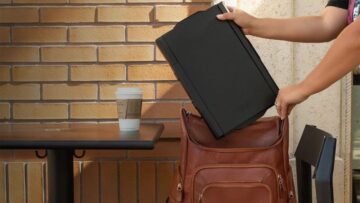Shaving your pubic hair is a personal choice. Want to shave it? Cool. Prefer not to? Cool. And what happens if you never shave pubic hair? Nothing! But there are a few things to know about how to keep your pubic area clean and fresh if you do keep hairs and how to remove them if you so choose. Here, we spoke with Gunvor Ekman Ordeberg, MD; Richard Bottiglione, MD; and Papri Sarkar, MD, about whether it’s safe to shave your pubic hair, the benefits of not shaving them, and how to do so safely—whether you choose to always, sometimes or never shave your pubic hair.
Experts In This Article
Can I shave my pubic hair? Is it safe?
Yes, it is safe to shave your pubic hair, but according to experts, it is a trickier area to shave than other parts of the body. According to Dr. Sarkar, visibility can be challenging, and there are many more nooks, crannies, and curves to consider. Dr. Ordeberg agrees, and shares that using products specifically made for intimate shaving is also essential to avoid irritation, razor burn, ingrown, and folliculitis. This means opting for shaving products designed for the pubic area, like the Billie V Smooth Shave Gel + Cleanser ($13) or the Fur Shave Cream ($32), both of which have been tested for areas down there.
Are there benefits to not shaving my pubic hair?
There are benefits to not shaving pubic hair altogether — you can avoid razor bumps, cuts, or nicks — when you don’t shave, you won’t get irritated. The experts note that if you are going to preserve your pubic hair, it’s important to keep them as clean as you would any other part of your body. “Use an intimate wash on a daily basis,” says Dr. Ordeberg. “It’s crucial that the wash is formulated with pH 5 and without irritants such as essential oils, perfumes, etc.” Opt for a genital-safe wash like the Love Wellness pH Balancing Cleanser ($16), which is fragrance-free and non-irritating.
Does shaving pubic hair reduce odor?
While shaving can generally reduce odor (as sweat, urine, and bacteria can no longer get trapped in the hair), all the experts agree that keeping the area clean is more important for odor reduction than shaving it. For this reason, Dr. Sarkar recommends using a product with a chemical exfoliant to minimize bacterial carriage and thoroughly wash the area. The First Aid Beauty Ingrown Hair Pads with BHA & AHA ($30) contain exfoliating glycolic acid, salicylic acid, and witch hazel ingredients to keep the area clean, smooth, and ingrown-free. The best part is that they can be used on the bikini line, whether or not you shave, to help eliminate odor and bacteria.
What happens if I don’t shave my pubic hair?
If you don’t shave your pubic hair, nothing happens, according to all of the experts! “The hair gets long, but by not shaving, you’re less likely to get irritation on the skin,” says Dr. Bottiglione. Dr. Ordeberg echoes this sentiment and shares that no studies show the benefits of shaving vs. not shaving pubic hair. This means that if you want to shave the area, go for it, and if you don’t, there’s no need to.
Tips for shaving pubic hair
If you do want to remove pubic hair, there are a few things to keep in mind. First, make sure you’re using a clean, sharp razor. “If you use a blade that is dull, damaged, or unclean, you’re more at risk for razor burn, cuts, or infections,” says Dr. Sarkar. It’s also crucial to avoid storing your razors in the shower, as dead skin cells and humidity are the perfect buffet for bacteria and fungus. “Clean it and leave it in a cool, dry place. This is one area where I’m all for a new razor every single shave,” she says.
Another tip is to always shave in the direction the hair grows. “When you shave against the hair, that’s when you’ll have more of a tendency to get ingrowns,” says Dr. Bottiglione. If you do have ingrowns, make sure you’re applying an exfoliating product to the bikini line, like the Billie Ultimate Skin Solution ($14) or the Topicals High Roller Ingrown Hair Tonic ($26), to help minimize inflammation.
Next, visibility is key, according to the experts. “Shave in an area with great lighting and a visual tool—you’re less likely to cut yourself if you can actually see and reach the hair you’re trying to remove,” says Dr. Sarkar. She recommends using a mirror, pulling the skin taught, and going slow. “This is a sensitive area so treat it as such—give it the time and attention it needs.”
Finally, after-care is important. “Soothe and moisturize the skin with gentle ingredients, and contrary to what many think, avoid applying alcohol [to the area] because it’s a major irritant that will dry out the skin,” says Dr. Ordeberg. Instead, moisturize the bikini line with a fragrance-free, gentle pick like Nécessaire The Body Lotion ($28), which has niacinamide and multi-vitamins. A moisturizing body oil can also be used whether you shave or not. Fur Oil ($26) is a crowd favorite with grape seed, jojoba, and tea tree oil to help soothe the area post-shave, or it can be used on full-length pubic hair to soften its texture.
Final takeaway
It is safe to shave your pubic hair, but it’s also safe to never shave your pubic hair. The benefits of not shaving pubic hair are avoiding irritation, cuts, and ingrowns—when you don’t shave, you won’t get irritated. If you don’t shave your pubic hair, nothing happens, but it’s important to keep it clean with a daily genital-friendly wash and exfoliant to keep odor at bay.
If you do choose to shave pubic hair, use a clean, sharp razor, take it slow, and eliminate ingrowns on the bikini line with an exfoliating tonic or pads. After you shave, or even if you don’t, complete your pubic hair routine with a gentle, fragrance-free moisturizer or oil. It’s your pubic hair and you can do with it as you wish.
Our editors independently select these products. Making a purchase through our links may earn Well+Good a commission.




